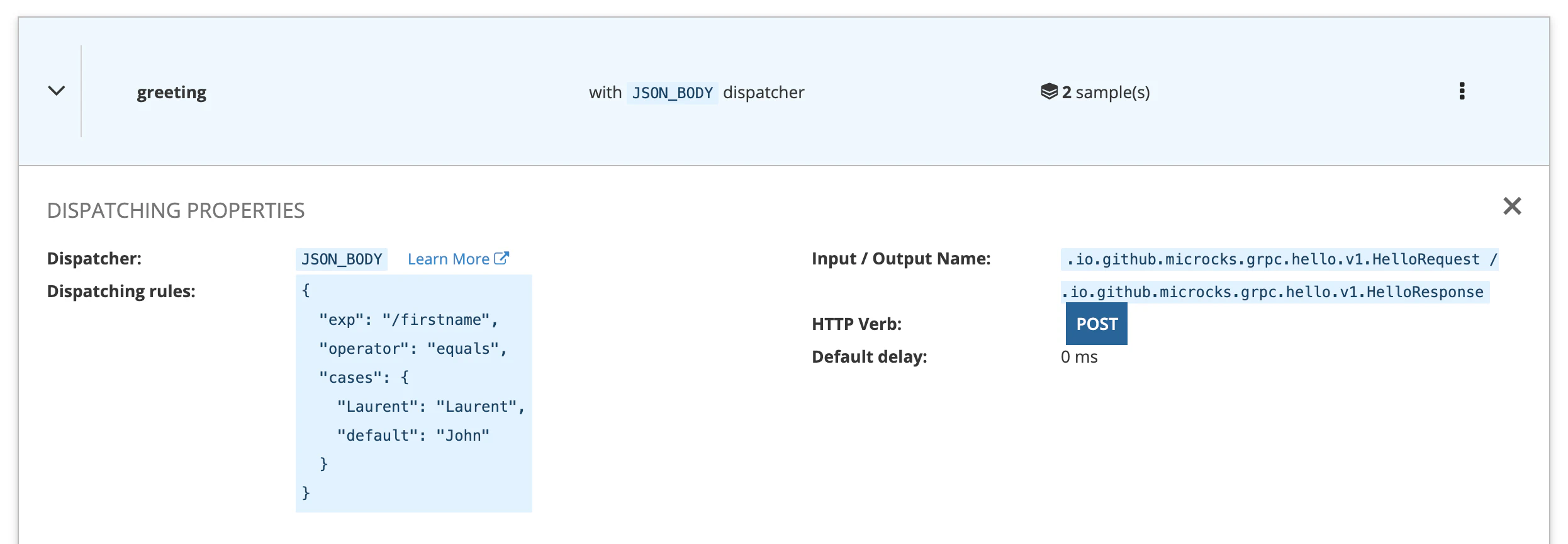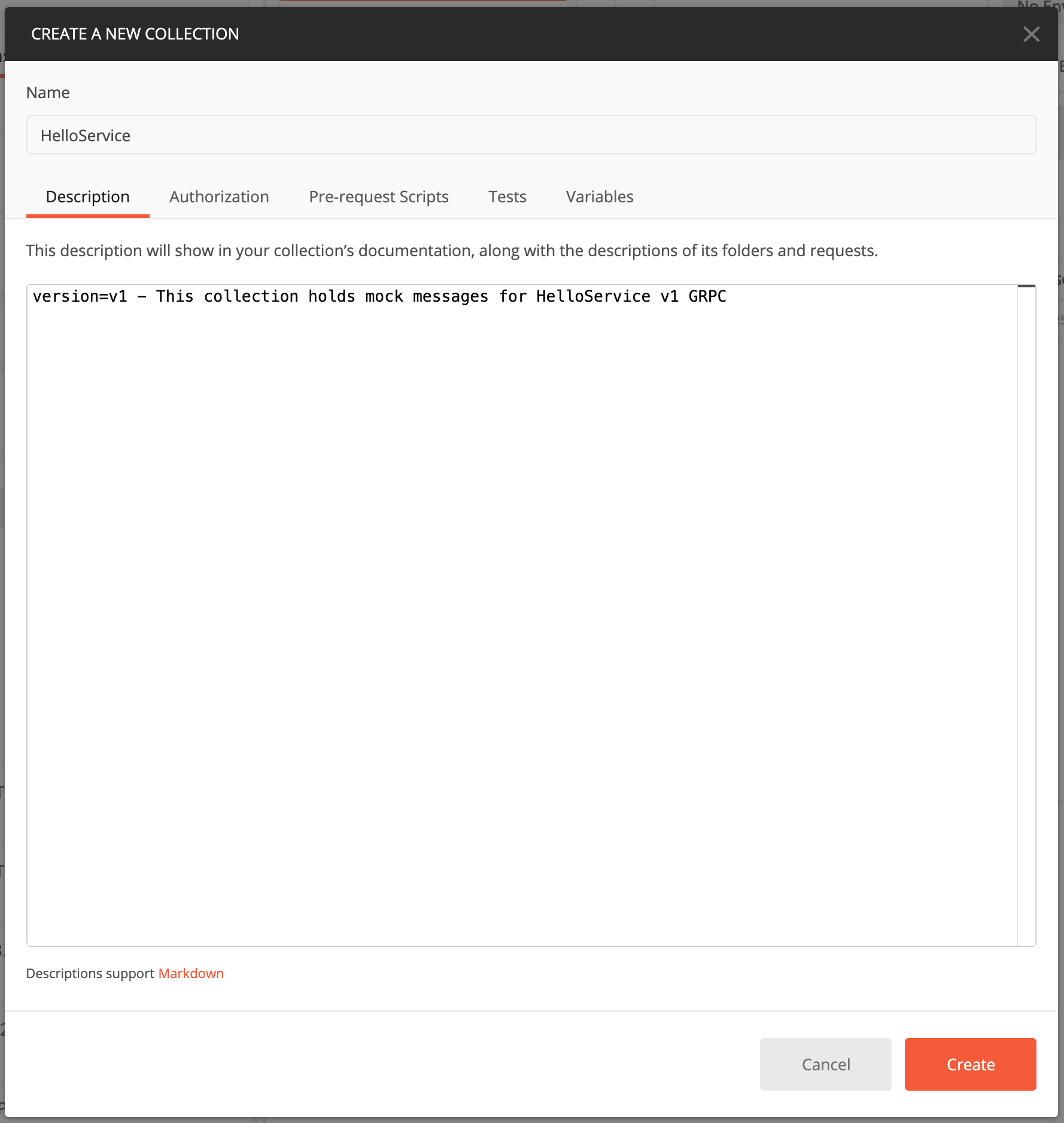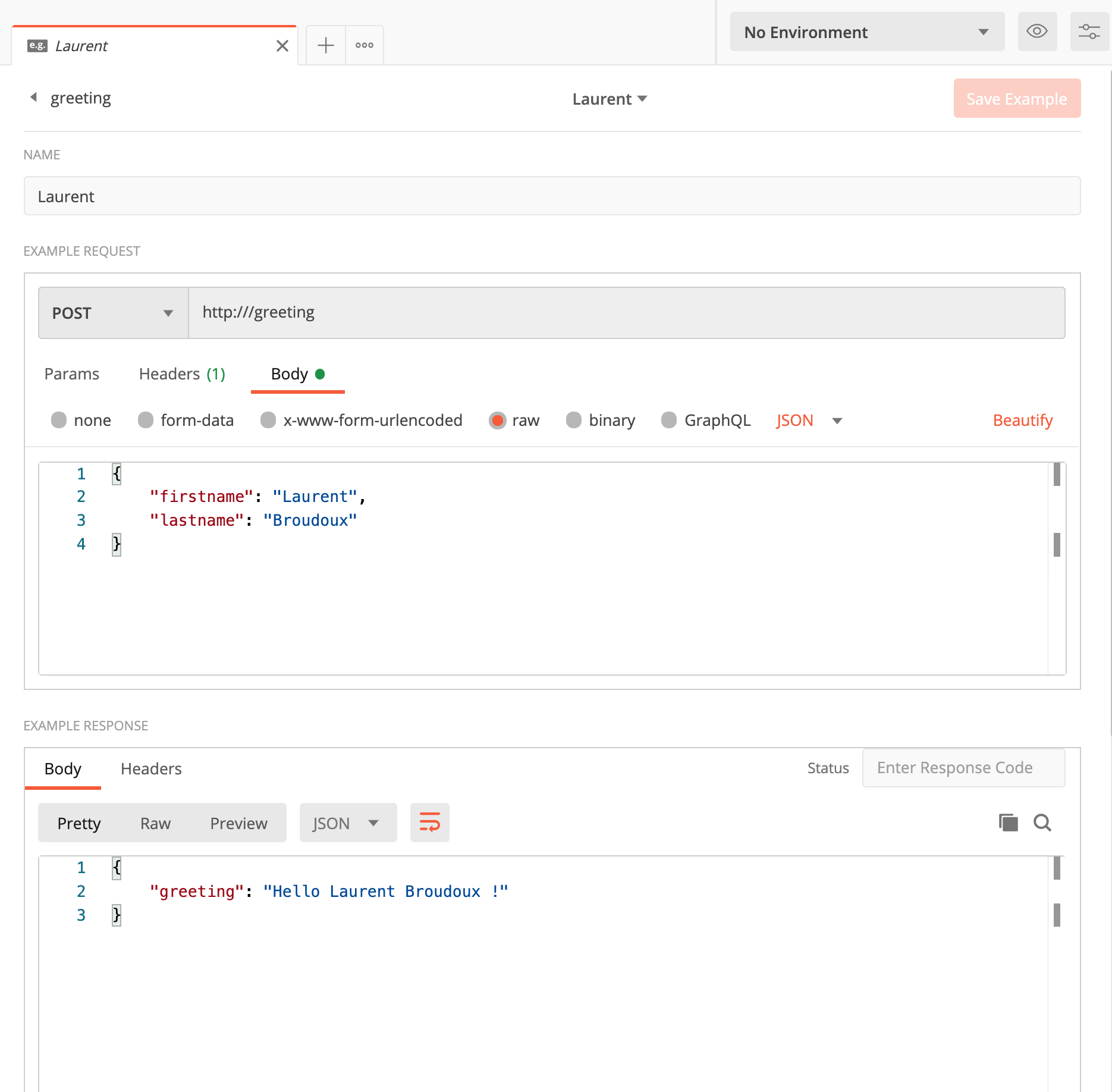gRPC Conventions
🗓️ Last updated on May 27, 2024 | 3 | Improve this pageIn order to use gRPC in Microcks, you will need two artifacts for each service definition as explained in Multi-artifacts support :
- A gRPC / Protocol Buffers file definition that holds the Service metadata and operations definitions,
- A Postman Collection file that holds the mock examples (requests and responses) for the different operations of the gRPC Service.
Conventions
In order to be correctly imported and understood by Microcks, your gRPC and Postman files should follow a little set of reasonable conventions and best practices.
As of today Microcks only supports
proto3syntax as it is now the default and encouraged version from gRPC community,gRPC doesn’t have the notion of Service version. In Microcks, this notion is critical and we will use the package information from the proto file to compute a version.
- For package name containing containing more than 2 paths levels, we’ll extract the last one as being the version. So
package io.github.microcks.grpc.hello.v1;will produce versionv1 - We’ll keep unchanged simplest package named, so
package com.acme;will produce versioncom.acmethat is not very unique 😞. - So be sure to follow gRPC versioning best practices !
- For package name containing containing more than 2 paths levels, we’ll extract the last one as being the version. So
Your Postman collection description will need to have a name that matches the gRPC service name and a custom property
versionthat matches the above computed version,Your Postman collection will need to organize examples into requests having the same name and url as the gRPC methods,
Your Postman collection will hold examples defined in JSON as JSON is a textual format easier to use than binary Protobuf 😅
We recommend having a look at our sample gRPC for HelloService as well as the companion Postman collection to fully understand and see those conventions in action.
Dispatchers
gRPC service mocks in Microcks supports 3 different types of dispatcher :
emptydispatcher means that Microcks will pick the first available response of operation,JSON_BODYdispatcher can be used for dispatching based on the content of the complete gRPC Request body translated in JSON,SCRIPTdispatcher can be used for dispatching based on the content of the complete gRPC Request body translated in JSON.

Illustration
Let’s dive in details of our sample io.github.microcks.grpc.hello.v1.HelloService gRPC service.
Specifying Service structure
This is a fairly trivial gRPC Service that just greet new comers. You can see below the definition found in hello-v1.proto .
syntax = "proto3";
package io.github.microcks.grpc.hello.v1;
option java_multiple_files = true;
message HelloRequest {
string firstname = 1;
string lastname = 2;
}
message HelloResponse {
string greeting = 1;
}
service HelloService {
rpc greeting(HelloRequest) returns (HelloResponse);
}
Considering the package of this proto file, when imported into Microcks, it will discover the io.github.microcks.grpc.hello.v1.HelloService service with version v1 and the unique operation greeting.
Specifying Service examples
Specification of examples is done using a Postman Collection as examples cannot be attached to main proto file and thanks multi-artifacts support feature.
Using Postman, just create a new Collection - using the same name as gRPC Service and adding the custom property version at the beginning of description like illustrated below:

You can now start organizing and creating requests that are matching with the gRPC service method name. For our example, we’re specifying the greeting request for the greeting gRPC method.

The next step is now to create a bunch of examples for each of the requests/operations of your Collection as explained by the Postman documentation
. You’ll give each example a meaningful name regarding the use-case it is supposed to represent. Example url should also match with the name of the gRPC method; here we have a simple http:///greeting.


Still Didn’t Find Your Answer?
Join our community and get the help you need. Engage with other members, ask questions, and share knowledge to resolve your queries and expand your understanding.
Join the community